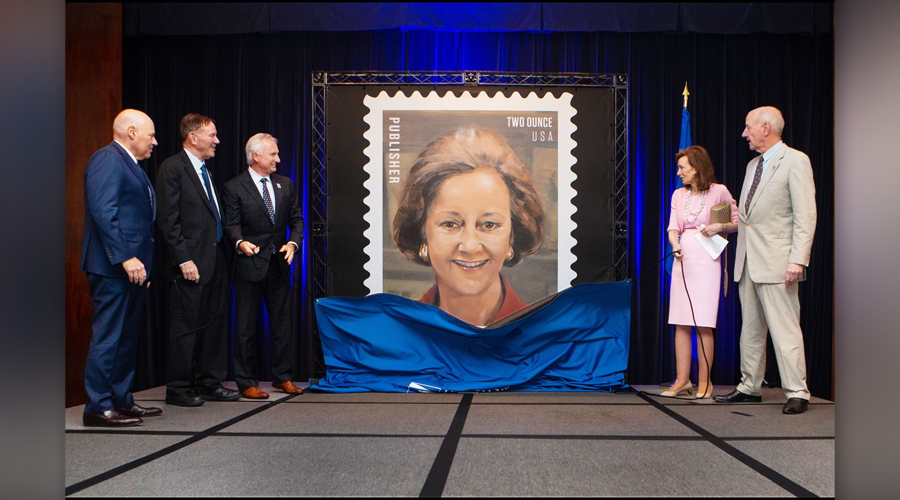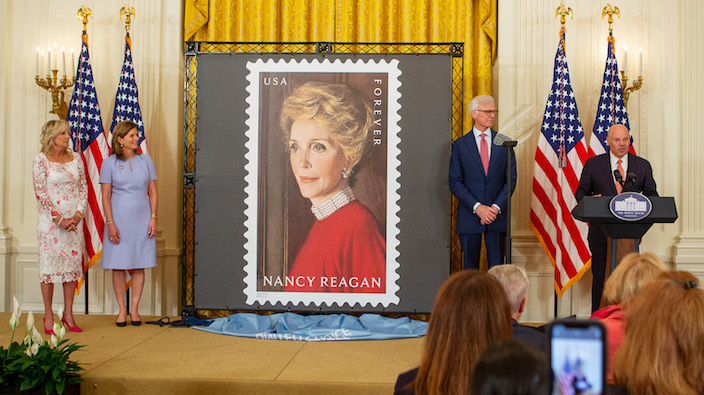Lee Moak, a member of the USPS Board of Governors, presided as the dedicating official at a stamp ceremony honoring Washington Post publisher Katharine Graham on June 14.
The event, held at the Library of Congress in Washington, DC, also featured Graham’s eldest son, Donald; her younger son, Stephen, and daughter, Lally Weymouth; historian Michael Beschloss; and Carla Hayden, the librarian of Congress.
House Speaker Nancy Pelosi, House Majority Leader Steny Hoyer, House Oversight Committee Chairwoman Carolyn Maloney, Sen. Jim Risch of Idaho and Supreme Court Justice Stephen Breyer were among the attendees. Postmaster General Louis DeJoy was also on hand for the event.
“Katharine Graham was a trailblazer — the first woman to head a Fortune 500 company, and the first to serve as a director of The Associated Press,” said Moak.
Graham (1917-2001) was often called the most powerful woman in America for the influential and shrewd decisions she made, starting in the turbulent 1960s until stepping down in the early 1990s.
She was the daughter of Eugene Meyer, a businessman who bought a then-struggling Washington Post in 1933 at a fire-sale price.
She married Supreme Court law clerk Phil Graham in 1940. After Meyer made her husband publisher in 1946, The Post grew in circulation and stature, adding Newsweek magazine and television stations to its portfolio.
In the wake of her husband’s tragic death in 1963, Graham, a widow with four children, little journalism experience and no business background, stepped in as publisher.
Perhaps the defining moment of her remarkable tenure was the momentous decision to publish the Pentagon Papers, a leaked, classified history of U.S. involvement in Vietnam.
The New York Times got hold of the document first and published excerpts, but a federal injunction barred the paper from any further publication. The Post then obtained a copy.
Graham was urged by journalists to publish and advised by lawyers not to. Adding to the tension of the moment was the fact that The Washington Post Co. was scheduled to go public around the same time.
Her brave decision to publish, and the Times and Post’s subsequent joint victory in a First Amendment case before the Supreme Court, was a watershed moment in American journalism.
Graham was also publisher during The Post’s coverage of Watergate, the scandal that ended Richard M. Nixon’s presidency.
Her 1997 memoir, “Personal History,” won a Pulitzer Prize.
She was posthumously awarded the Presidential Medal of Freedom in 2002.
The 2-ounce denomination Katharine Graham stamp, part of the Distinguished Americans series, was designed by Derry Noyes, with original art by Lynn Staley based on a 1970s photograph of Graham.
The stamp is available at Post Offices and usps.com.


